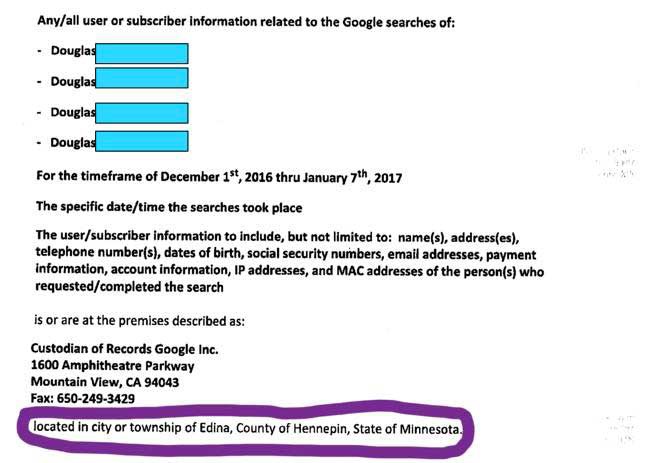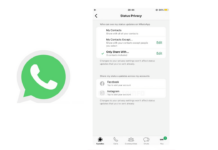Did you know that finding certain things on Google can bring us more of a problem? Hence, recently police obtained a search warrant to ask Google for the names and details of the people who searched for this wire transfer fraud.
Judge Grants Warrant Against Anyone Who Googled This Person
Finding certain things on Google can bring us more of a problem. That’s what apparently did not consider a criminal in the United States, in the town of Edina, Minnesota, which has a population of around 50,000. There, police have received judicial approval to analyze the searches that the whole village did a few months ago in order to find a scammer.
Police and investigators have focused the case on an online photo of someone who has the same name as a victim was. The image appeared in a passport used to deceive a credit institution in order to transfer $28,500 to a man’s account in the town of Edina. The passport that included the fake image was faxed through a “spoofed” phone number to simulate that it was the victim’s actual phone number.
This false image appears in Google’s results when searching for the victim’s name, so the researchers asked Google for help to determine who had sought the victim’s name (Douglas’s first name) or some variation of it between the past December 1st and 7th January. The image did not appear when doing the search in Yahoo or Bing, reason why the investigators concluded that Google was used to obtain the photograph of the victim, that appeared in the results of Google Images.
The tech giant Google initially did not want to offer the authorities this information, which was done through a subpoena, although not signed by a judge, has the same validity as a court order. For this reason, the investigators had to resort to a court order that obliged Google to offer all the data they had from the person who had searched, including email addresses, payment information, IP addresses, MAC addresses, date of birth, name, etc.

The court order not only forces Google to share this data from people in the village who would have sought it but to any of the United States, since the swindler could have acted from outside or used a VPN to do so.
Google will fight the court order
Meanwhile, Google has suggested that it will fight against the court order and will not offer this information to the authorities, in order not to set a precedent with this case, as more authorities would use this method to try to obtain identities of possible Users.
Google’s policy is to fight as much as possible when someone requests data from their users. The data you currently provide to third parties are always anonymous, so they can not be related to us. The problem is that through these techniques such as fingerprinting, it is possible to intuit or even identify a user by the sites they visit and the way they navigate.
So, what do you think about this? Simply share your views and thoughts in the comment section below.



